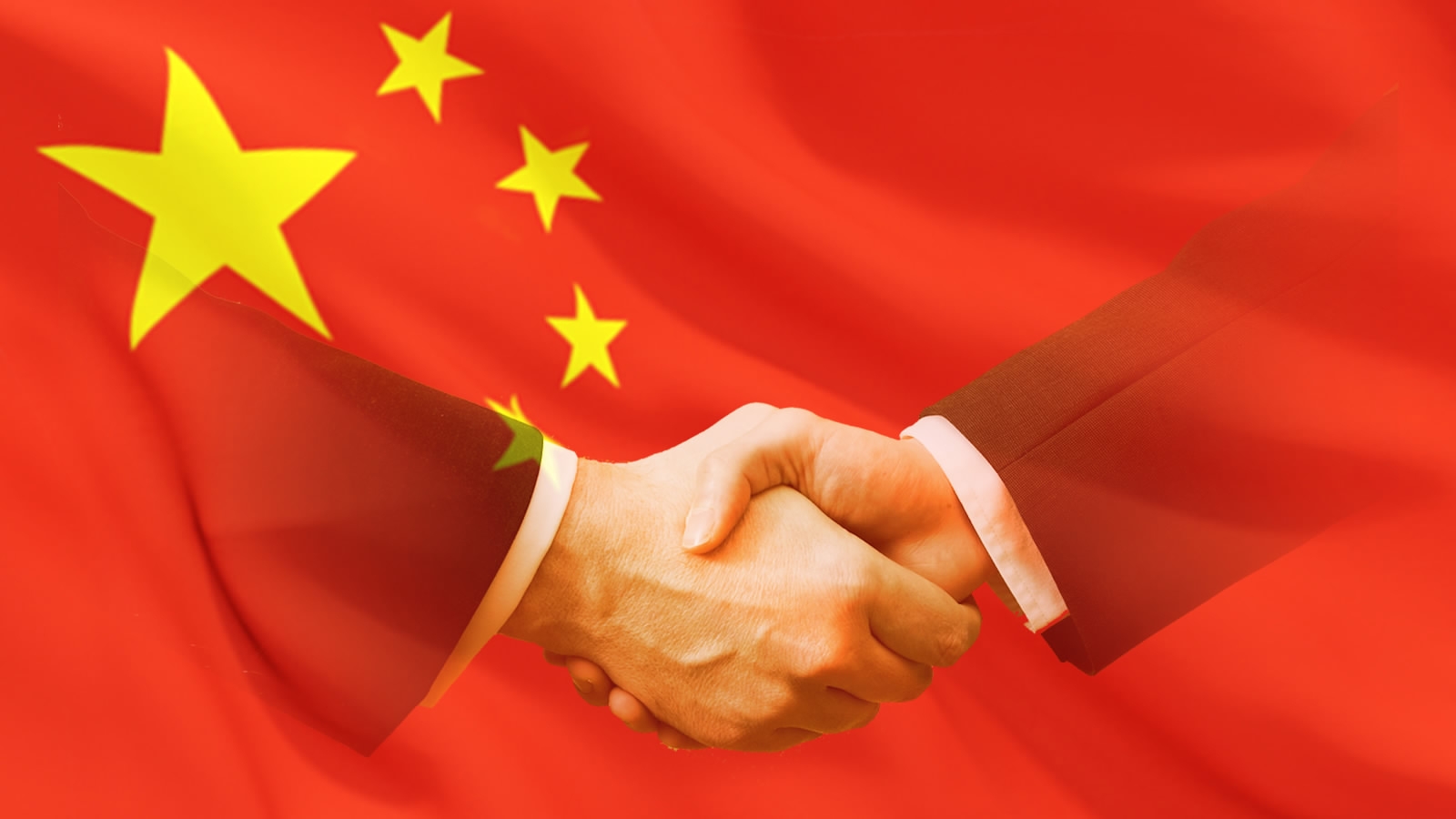China has long been accused by some in the West of seeking hegemony and expansion and posing a real threat to other countries. These voices often disregard the country’s adherence to a peaceful rise, promotion of inclusive development and commitment to win-win cooperation.
Since the 18th National Congress of the Communist Party of China (CPC) in November 2012, the CPC Central Committee under the leadership of Xi Jinping has been promoting "major-country diplomacy with Chinese characteristics" and the goal for building a “community of prosperity and progress for mankind”.
China’s Foreign Minister Wang Yi summed up the new characteristics of China’s diplomacy in three words when attending the Fifth Session of the 12th National People's Congress's press conference on March 8, 2017.
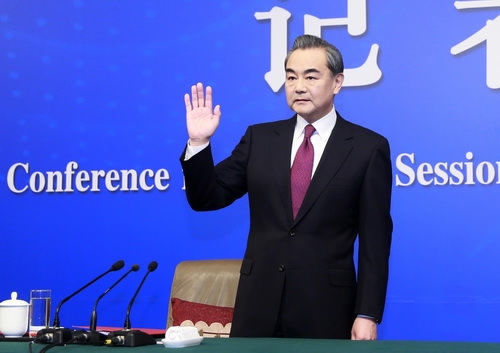
The Fifth Session of the 12th National People's Congress held a press conference, where Foreign Minister Wang Yi answered questions from domestic and foreign media on China's foreign policy and external relations On 8 March 2017. /MOFA Photo
The Fifth Session of the 12th National People's Congress held a press conference, where Foreign Minister Wang Yi answered questions from domestic and foreign media on China's foreign policy and external relations On 8 March 2017. /MOFA Photo
The first is vision. Over the past five years, China has adopted a myriad of strategies and policies when dealing with different countries, guided by unshakable constants and inspired by the changing times.
China-US: Building a new model of 'major-country' relationship
Some Western commentators have not been optimistic about China-US relations, arguing that the two countries cannot escape the Thucydides Trap, which contends that a war is likely to break out when a rising power threatens an established one and instills fear in it.
During his visit to the US in April this year, President Xi said, "There is no such thing as the so-called Thucydides Trap in the world. But should major countries time and again make the mistakes of strategic miscalculation, they might create such traps for themselves."
With Donald Trump in the Oval Office, China proposed a new model of bilateral ties based on non-confrontation, no conflict, mutual respect and win-win cooperation, to ensure the stability of Sino-US relations during the transition from the Obama administration to Trump's.
Some in the US expressed doubt about the effectiveness of the new model, but former Chinese State Councilor Dai Bingguo called for the support of China’s proposal, noting that no emerging country in the history has offered what China has put forth.
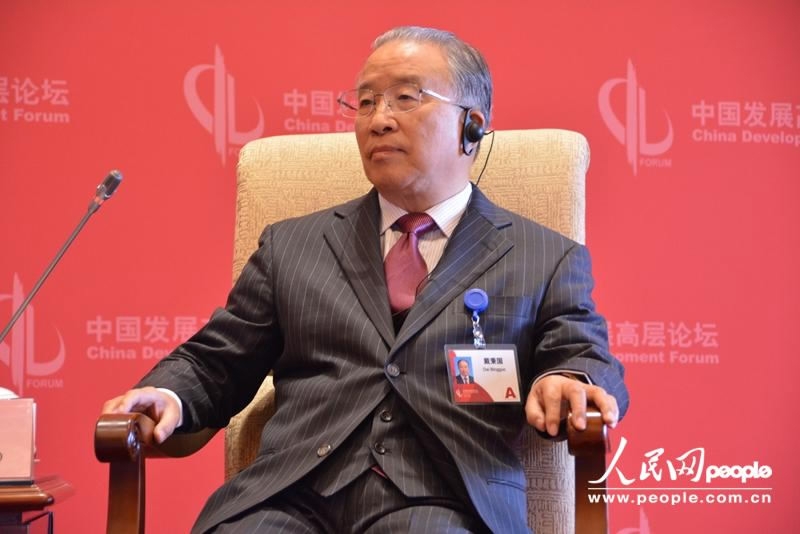
Former Chinese State Councilor Dai Bingguo at the China Development Forum in Beijing, March 19, 2016. /People.com Photo
Former Chinese State Councilor Dai Bingguo at the China Development Forum in Beijing, March 19, 2016. /People.com Photo
"Those trying to reverse our presidents’ consensus should correct their position and support the US government along the path of building the new model of major-country relationship with China. Otherwise, they will only regret when they ‘lose China’”.
China-Russia & EU: Comprehensive strategic partnership
In a recent article published in Russian newspaper Izvestia, Chinese Ambassador to Russia Li Hui noted that the Sino-Russian relations have been at a high level since the 18th CPC National Congress, which is the epitome of successful "major-country diplomacy."
The strategic partnership between China and Russia was established 20 years ago and since 2014 the two sides have stepped into a new stage – a comprehensive strategic partnership.
Beijing and Moscow cooperate in various fields, including energy, trade, investment, high technology, infrastructure and agriculture and have reached consensus on aligning the Belt and Road Initiative with the Eurasian Economic Union.
In the past five years, Xi visited Russia six times and met with Russian President Vladimir Putin more than 20 times on various occasions, pushing the development of bilateral relations even further.
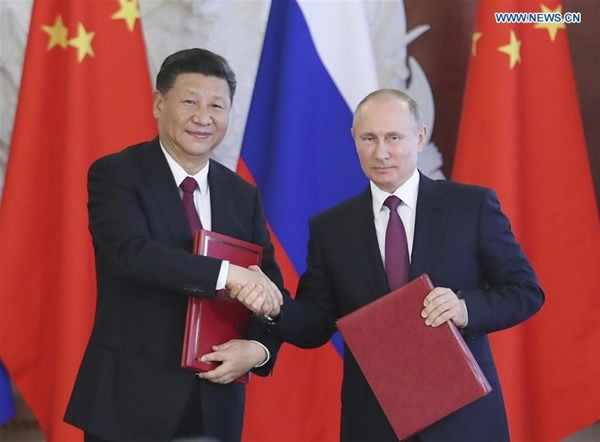
Chinese President Xi Jinping (L) and his Russian counterpart Vladimir Putin (R) attend a signing ceremony after their talks in Moscow, Russia, July 4, 2017. /Xinhua Photo
Chinese President Xi Jinping (L) and his Russian counterpart Vladimir Putin (R) attend a signing ceremony after their talks in Moscow, Russia, July 4, 2017. /Xinhua Photo
Putin has previously said that President Xi is a “very good friend and a reliable partner” noting that the Chinese leader “devotes much of his personal attention to the development of Russia-China relations.”
After taking office in March 2013, Xi has also attached great importance to the relationship between China and Europe, paying five visits to the continent to date.
According to China’s Policy Paper on the EU published in 2014, China and the EU have promoted all-dimensional, multi-tiered and wide-ranging cooperation to deepen the Comprehensive Strategic Partnership through the three pillars of political, economic and people-to-people exchanges.
China and its neighbors
Territorial disputes have previously soured China’s ties with neighboring countries, especially in the South China Sea case, with some foreign media accusing China of “invasion” and “provocation” while ignoring historical facts.
But President Xi has clearly stated that none of such allegations are true.
“No matter how much stronger it may become, China will never seek hegemony or expansion. It will never inflict its past suffering on any other nation,” he noted.
Instead, China stays true to facts, and safeguarding the country’s sovereignty and territorial integrity are core to China’s national interests.
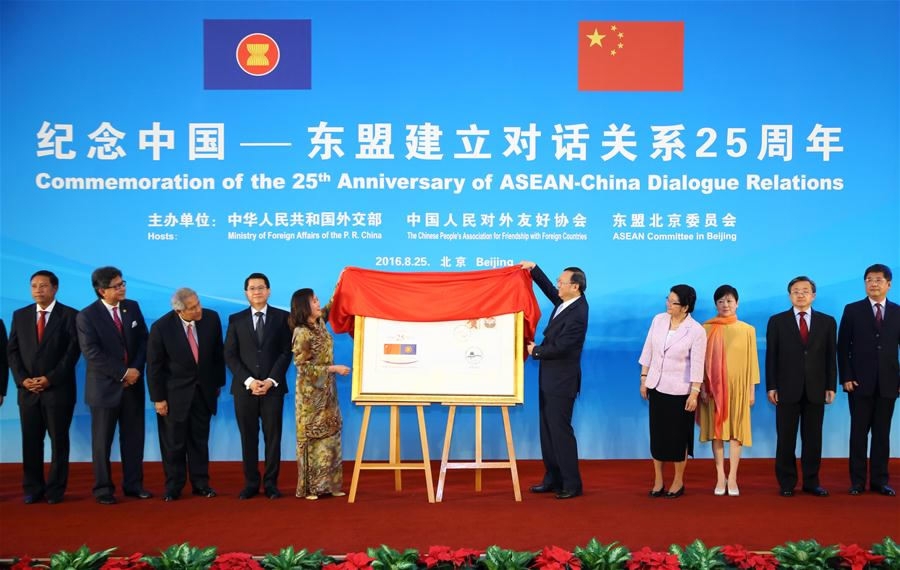
Chinese State Councilor Yang Jiechi (5th R) attends a reception commemorating the 25th anniversary of ASEAN-China dialogue relations in Beijing, capital of China, August 25, 2016. /Xinhua Photo
Chinese State Councilor Yang Jiechi (5th R) attends a reception commemorating the 25th anniversary of ASEAN-China dialogue relations in Beijing, capital of China, August 25, 2016. /Xinhua Photo
On the other hand, President Xi has shown China's great willingness to establish a community of common destiny with its neighbors by asserting that China's commitment to peaceful development or an independent, peace-oriented foreign policy is “not an expedient tactic, but our strategic choice and solemn commitment."
China's diplomacy in the region is based on amity, sincerity, mutual benefits and inclusiveness and has been elaborated by Xi's four-point proposal, which underlines maintaining peace and security, linking development strategies, conducting security cooperation and consolidating people-to-people friendship.
China has also actively participated in regional cooperation mechanisms including the Shanghai Cooperation Organization (SCO); ASEAN-China dialogue; ASEAN-China, Japan and Republic of Korea (ROK) (10+3) dialogue; East Asia Summit; China-Japan-ROK cooperation and Lancang-Mekong Cooperation.
China – Africa & LAC: Friendship and cooperation
Some western media have dubbed China's growing presence in Africa as “neo-colonialism” which aims to control the continent.
Contrary to what some claim in the West, China "is not colonizing Africa," Adji Ayassor, minister of state in the Togolese Ministry of Economy, Finance and Development Planning has said.
“We believe that is the best way to develop Africa ... It is a real cooperation.”
Commentator Gui Tao from Xinhua News Agency has stated that if actions by the world’s largest developing country, which bring better infrastructure and aid without political strings to Africa, are defined as neo-colonialism, then China is definitely qualified as such.
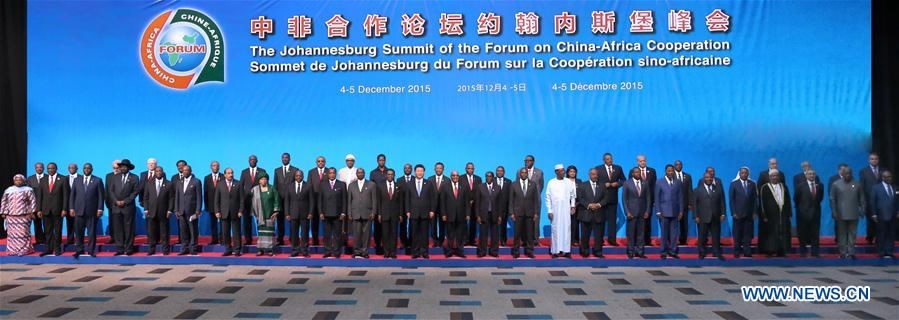
Chinese President Xi Jinping poses for a group photo after the opening ceremony of the Johannesburg Summit of the Forum on China-Africa Cooperation in Johannesburg, South Africa, December 4, 2015. /Xinhua Photo
Chinese President Xi Jinping poses for a group photo after the opening ceremony of the Johannesburg Summit of the Forum on China-Africa Cooperation in Johannesburg, South Africa, December 4, 2015. /Xinhua Photo
A new chapter for China-Africa relations began in 2015 as Xi announced visionary action plans and policy principles at the opening ceremony of the Johannesburg Summit of the Forum on China-Africa Cooperation.
China provided Africa with 10 major plans covering areas of industrialization, agricultural modernization, infrastructure, financial services, green development, trade and investment facilitation, poverty reduction and public welfare, public health, people-to-people exchanges, and peace and security. It also offered 60 billion US dollars to support the implementation of related projects.
African leaders, policymakers and scholars hailed China’s new cooperation measures, noting they injected fresh hope and confidence in a longstanding bilateral cooperation.
As China-Latin America and Caribbean (LAC) countries’ cooperation forges ahead, there has been a lot of noise questioning China’s motives and accusing it of deliberately moving into the US’s backyard.
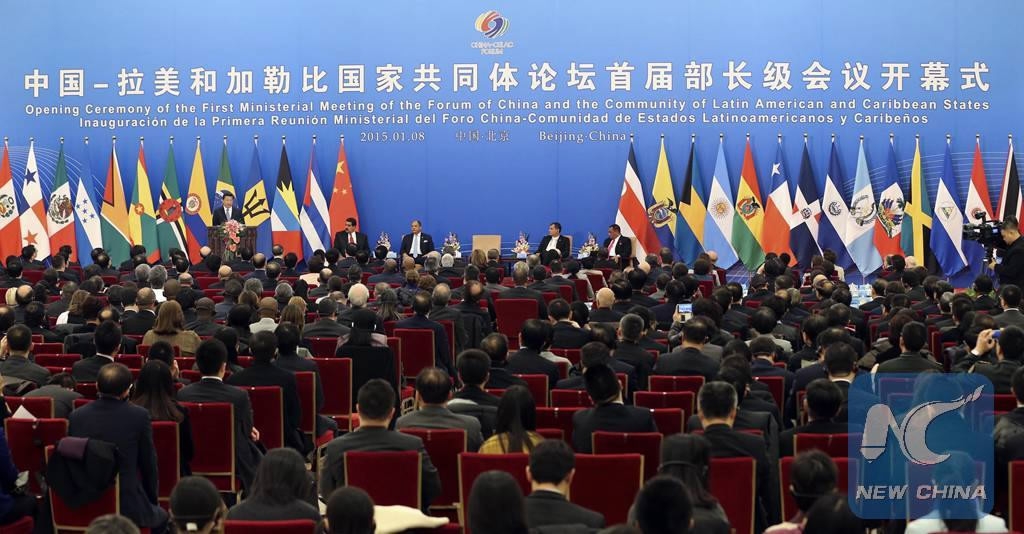
The Forum of China and the Community of Latin American and Caribbean States (CELAC) holds the first ministerial meeting in Beijing, capital of China, January 8, 2015. /Xinhua Photo
The Forum of China and the Community of Latin American and Caribbean States (CELAC) holds the first ministerial meeting in Beijing, capital of China, January 8, 2015. /Xinhua Photo
But such allegations are groundless, as China’s partnership with the region has not been directed against any third party.
While addressing the Peruvian Congress on November 21, 2017, Xi called on China and Latin American countries to strengthen dialogue on global issues and boost cooperation on domestic development, in a bid to better build their community of common destiny on a new starting point in history.
China is engaging with LAC in a comprehensive and cooperative partnership, establishing the Forum of China and the Community of Latin American and Caribbean States (CELAC).
China has also announced to boost bilateral trade with LAC to 500 billion US dollars and elevate investment in the region to 250 billion US dollars by 2015.
China-Middle East: Pragmatic cooperation
China's first Arab Policy Paper, issued at a time the Middle East was bleeding from chronic conflicts and terrorism in 2016, refuted critics’ opinion that China is an outsider to the region.
The paper highlights cooperation areas in investment, trade, energy, space, nuclear power, production capacity and infrastructure construction based on the principle of mutual benefit and win-win results with Arab states, proving those who claim China’s interest in the region is oil-fueled wrong.
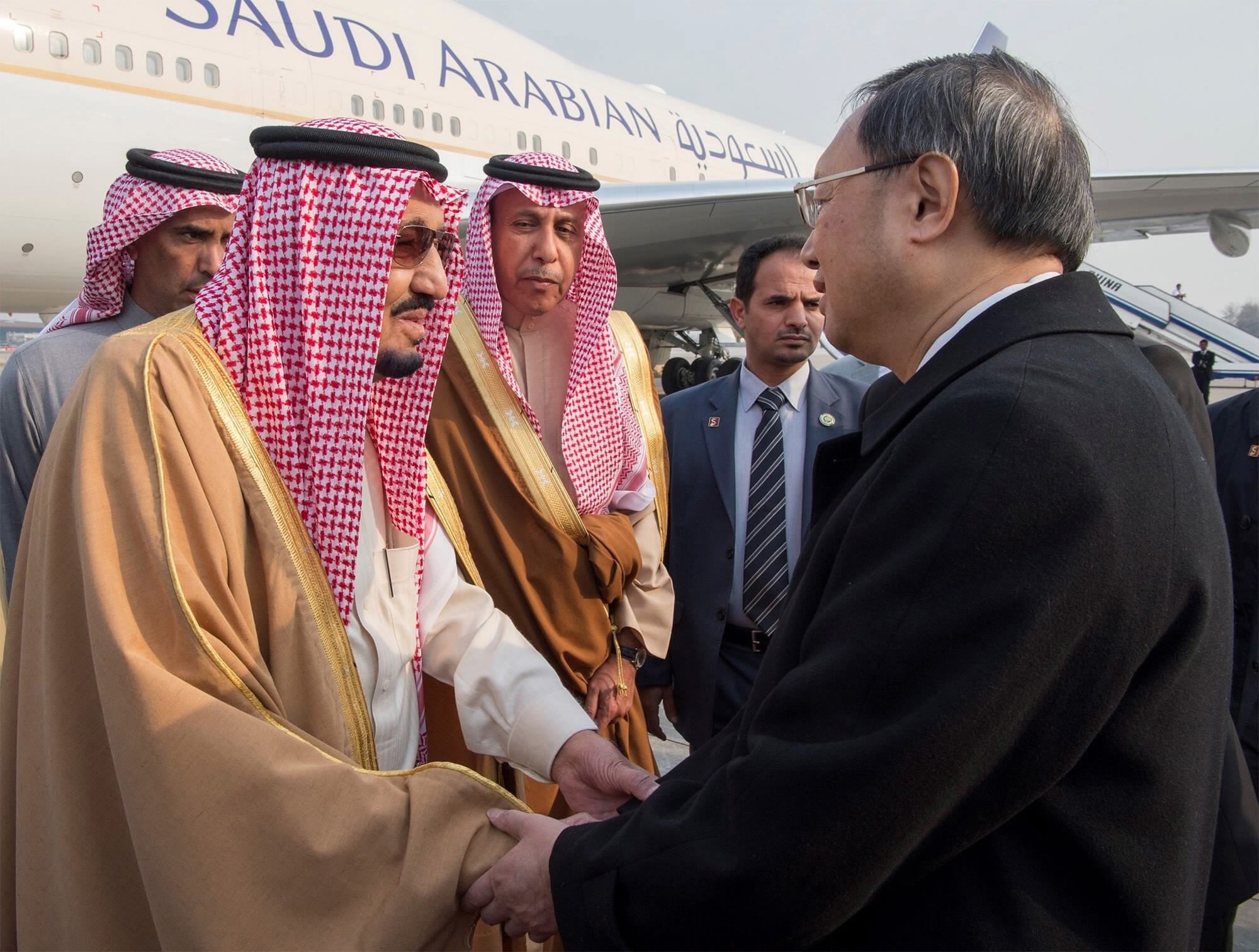
China's high-ranking diplomat Yang Jiechi (R) welcomes Saudi Arabian King Salman (L) at Beijing International Airport on March 15, 2017. /CFP Photo
China's high-ranking diplomat Yang Jiechi (R) welcomes Saudi Arabian King Salman (L) at Beijing International Airport on March 15, 2017. /CFP Photo
China’s peace message has also been spread all around the Middle East. In 2015, Iran and six world powers reached a landmark nuclear deal, through negotiations in which China was an integral part.
Muhammad Abdel-Wahab Al-Sakit, a former Arab League ambassador to China voiced support to China’s role in the region, noting that "China, as a third world and developing country, sincerely cares about the settlement of the Middle East issue".
Chinese wisdom contributes to global governance
Western leaders, including former President Barack Obama, and mainstream US media have criticized China for being a free rider in global governance.
But such claims are nothing but unsubstantiated claims.
With the country developing fast and becoming increasingly present on the world stage, China has exerted more efforts in recent years to participate in world affairs and exercise its vision in enhancing global governance. This is also Wang Yi’s second key word: Initiative.
At the G20 Hangzhou Summit, China proposed the inclusion of green financing in the event’s agenda for the first time ever. The first global framework for multilateral rules governing investment was also laid out.
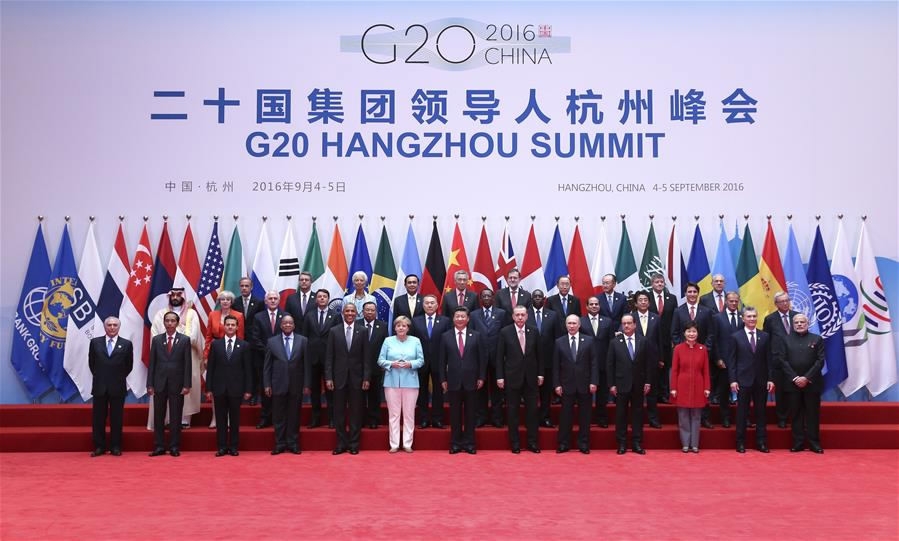
Chinese President Xi Jinping and other leaders of the Group of 20 (G20) members, some guest countries and international organizations pose for a group photo ahead of the opening ceremony of the G20 summit in Hangzhou, capital of east China's Zhejiang Province, September 4, 2016. /Xinhua
Chinese President Xi Jinping and other leaders of the Group of 20 (G20) members, some guest countries and international organizations pose for a group photo ahead of the opening ceremony of the G20 summit in Hangzhou, capital of east China's Zhejiang Province, September 4, 2016. /Xinhua
At the 86th Interpol General Assembly held in Beijing in September this year, China proposed the concept of common, comprehensive, cooperative and sustainable security to jointly respond to security challenges.
China is also the second largest financial contributor to the UN peacekeeping mission and the largest contributor of troops among the five permanent members of the UN Security Council.
The country is also working to set up funds to boost South-South Cooperation.
The China-proposed Belt and Road Initiative has made greater-than-expected achievements, involving more than 100 countries, regions and international organizations, while the Asian Infrastructure Investment Bank (AIIB), a multilateral financial institution spearheaded by China, is also investing in projects across the region.
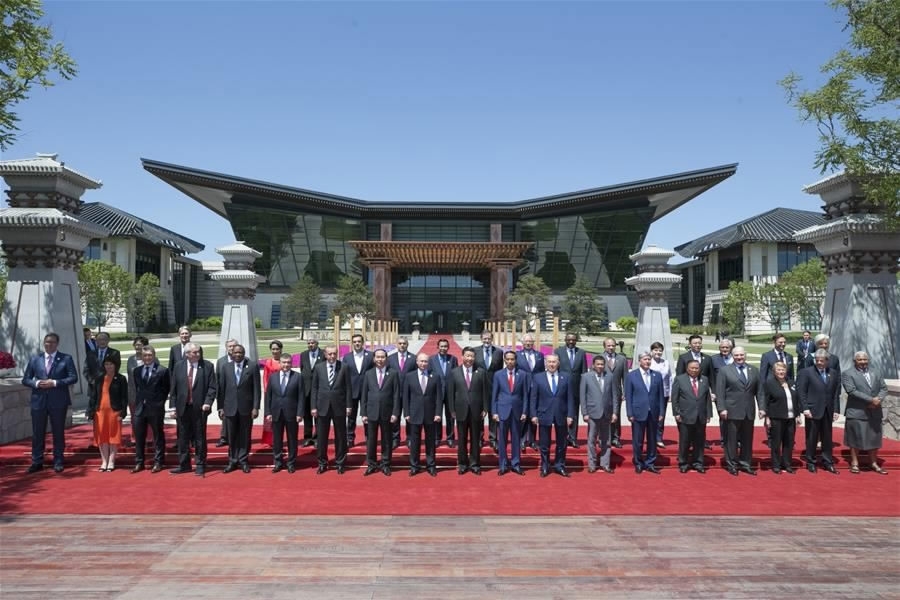
Chinese President Xi Jinping, foreign delegation heads and guests pose for a group photo at the Leaders' Roundtable Summit of the Belt and Road Forum for International Cooperation at Yanqi Lake International Convention Center in Beijing, May 15, 2017. /Xinhua Photo
Chinese President Xi Jinping, foreign delegation heads and guests pose for a group photo at the Leaders' Roundtable Summit of the Belt and Road Forum for International Cooperation at Yanqi Lake International Convention Center in Beijing, May 15, 2017. /Xinhua Photo
At the BRICS Xiamen Summit in early September, China put forward the "BRICS Plus" approach by inviting the leaders of Egypt, Mexico, Thailand, Tajikistan and Guinea to take part in the dialogue.
The country has also been actively involved in setting rules in affairs concerning the oceans, polar regions, cyberspace, outer space, nuclear security, anti-corruption and climate change.
With its ideas and actions, China’s increasingly prominent role as a global actor has gradually received international recognition.
Ozlem Zerrin Keyvan, adviser on Asia Pacific studies with the Ankara Center for Crisis and Policy Studies, said China has adopted a constructive policy of not intervening in the internal affairs of other countries. By vetoing, abstaining or accepting the resolutions of the UN Security Council, China is making its desire for peace known.
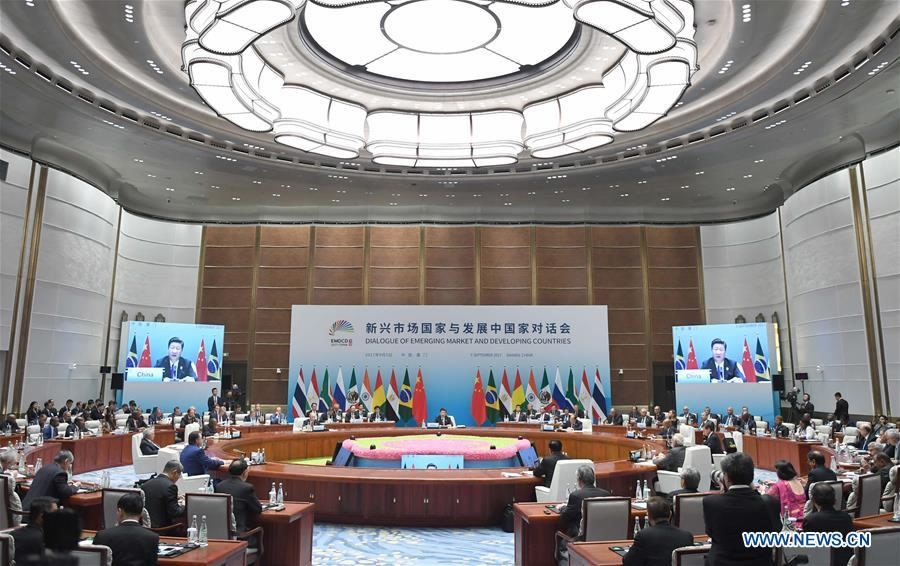
Chinese President Xi Jinping chairs the Dialogue of Emerging Market and Developing Countries in Xiamen, southeast China's Fujian Province, September 5, 2017. /Xinhua Photo
Chinese President Xi Jinping chairs the Dialogue of Emerging Market and Developing Countries in Xiamen, southeast China's Fujian Province, September 5, 2017. /Xinhua Photo
William J. Carroll, president emeritus of Benedictine University in the US, also agreed that in the past five years China has played a more visible role in global governance, including through initiatives of its own.
Consistency and steps towards the future
The third and final key concept is consistency.
Wang explained during the aforementioned press conference that “in the face of instability and conflicts in many parts of the world, we have adhered to the path of peaceful development. In the face of skepticism over the existing international order and system, we have called for maintaining it and, where necessary, improving it. In the face of a growing backlash against globalization and rising protectionism, we have championed multilateralism and openness and inclusiveness.”
“It's our responsibility as a major country to maintain consistency and continuity in our foreign policy, which can offset various uncertainties and demonstrate China's confidence and firmness of purpose,” he added.
The 19th CPC National Congress is right around the corner, and under the leadership of Xi, China will no doubt continue to blaze its diplomatic trail towards a "community of prosperity and progress for mankind" in spite of discouraging voices.

